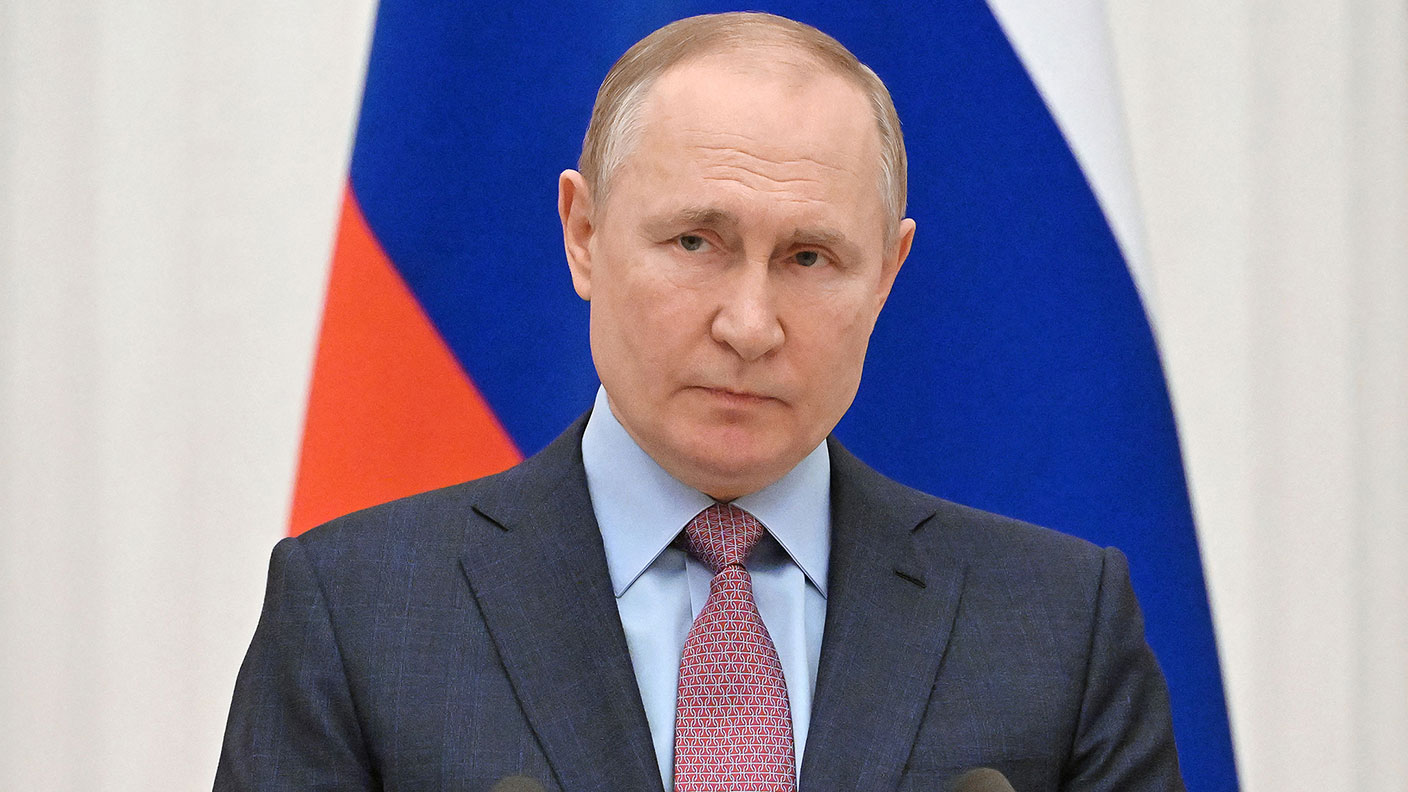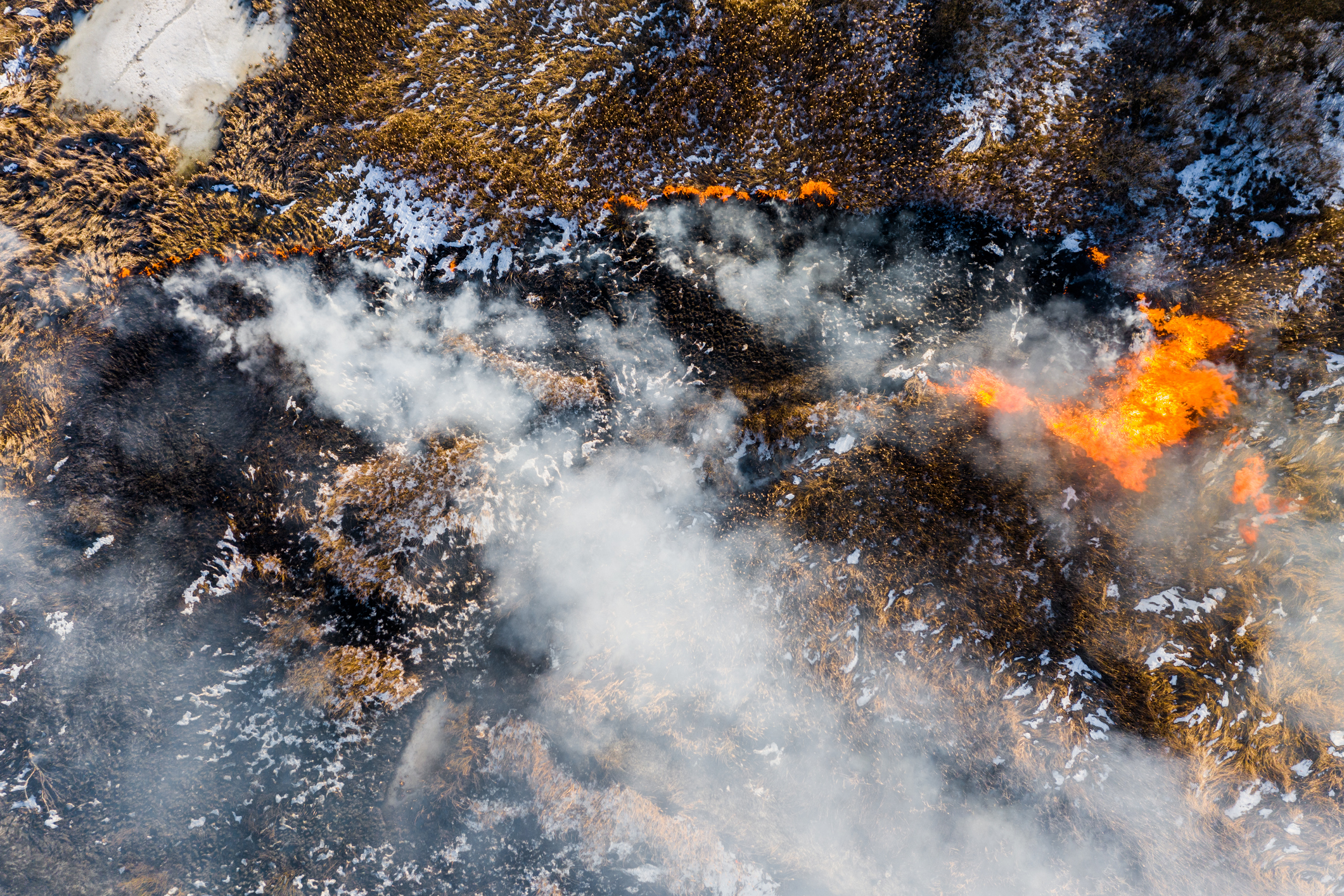How the West can win Putin’s war on food
The West could easily make up the shortfall if it let the free market rip, says Matthew Lynn.


Get the latest financial news, insights and expert analysis from our award-winning MoneyWeek team, to help you understand what really matters when it comes to your finances.
You are now subscribed
Your newsletter sign-up was successful
Want to add more newsletters?

Twice daily
MoneyWeek
Get the latest financial news, insights and expert analysis from our award-winning MoneyWeek team, to help you understand what really matters when it comes to your finances.

Four times a week
Look After My Bills
Sign up to our free money-saving newsletter, filled with the latest news and expert advice to help you find the best tips and deals for managing your bills. Start saving today!
Most of the West has already started to wean itself off Russian oil, and may soon be able to switch off the gas pipelines as well. But although we may be able to do without Russia’s energy, food is a different matter. It is becoming increasingly clear that Vladimir Putin is weaponising food supplies as part of his war on the West. Very soon there may be widespread shortages.
Both Russia and Ukraine were the world’s breadbaskets. Between them, the two countries supply 28% of globally traded wheat, 29% of barley, 15% of maize, and 75% of sunflower oil. Add it all up and it comes to 12% of all the calories traded around the world. That is now at real risk.
Ukraine’s agricultural industry is being systematically destroyed by Russian forces and the Black Sea ports that were used to ship its grains to the rest of the world are either now in Russian hands or effectively blockaded. Russia’s exports are under the control of its government. Putin can hold the world to ransom. Indeed, he is already doing so. The price of wheat is up by more than 60% this year, and India has already banned all exports on fears that it will run out of grain to feed its own people. Very soon countries dependent on imported food could well be facing critical shortages, while prices soar elsewhere – and Russia can exploit that to its own advantage.
MoneyWeek
Subscribe to MoneyWeek today and get your first six magazine issues absolutely FREE

Sign up to Money Morning
Don't miss the latest investment and personal finances news, market analysis, plus money-saving tips with our free twice-daily newsletter
Don't miss the latest investment and personal finances news, market analysis, plus money-saving tips with our free twice-daily newsletter
Making up the shortfalls
The truth, however, is that we could easily be making up that shortfall in production. Agriculture is the most heavily regulated, state controlled and politically managed industry in the world. For the last 30 years we have been doing everything we can to limit production. It is hardly surprising we have ended up so completely dependent on Russia and Ukraine. There are plenty of ways we could start to change that.
First, we should liberalise the rules on gene editing and genetically modified crops. The technology has been around for a couple of decades, but public opinion has been too squeamish to embrace it. Genetically edited wheats and barleys could have dramatically improved crop yields, would require less cultivated land and use less fertiliser. How much extra could we produce? No one knows for sure because right now the technology is so restricted there has been little incentive for anyone to invest in it. But it could easily be 20% to 30% more per acre – and that would make a huge difference.
Next, we should ease up the restrictions on fertilisers. The EU has spent the last five years steadily banning some of the most effective fertilisers and weed killers on flimsy environmental grounds, even though they are the most effective way of getting more crops out of every field. If we relaxed some of those restrictions, as well as making it easier for agro-chemical companies to come up with new types of fertilisers, we could dramatically increase yields.
Change the incentives
Finally, and perhaps most importantly, we should create a free market in agriculture. Within Europe, the Common Agricultural Policy has burnt its way through huge amounts of money, but has been aimed at supporting farming communities and protecting the environment, rather than trying to get more food out of the ground. Indeed, a lot of the time it pays farmers to grow less food instead of more (which is going to look like a very odd policy if there are serious grain shortages around the world). The UK might have left the EU, but so far we have shown very little interest in reforming agricultural policy to produce more. Meanwhile, countries such as the US and Argentina, both capable of producing vast amounts of grain, protect the industry with tariffs, leaving it unable to compete in the global market as effectively as it could, and reducing incentives to export more.
It is crazy that the world is dependent on Russian grain. We need to end that as soon as possible. There is plenty of land in the world to grow enough crops to feed everyone. With the right technology, and with free markets in agriculture, we could achieve that in just a few years – but it is not going to happen unless we start now.
SEE ALSO:
What war in Ukraine means for agricultural commodities
Russia, Ukraine and the coming global food crisis
Will the sanctions aimed at Putin have any effect?
Get the latest financial news, insights and expert analysis from our award-winning MoneyWeek team, to help you understand what really matters when it comes to your finances.

Matthew Lynn is a columnist for Bloomberg and writes weekly commentary syndicated in papers such as the Daily Telegraph, Die Welt, the Sydney Morning Herald, the South China Morning Post and the Miami Herald. He is also an associate editor of Spectator Business, and a regular contributor to The Spectator. Before that, he worked for the business section of the Sunday Times for ten years.
-
 How a ‘great view’ from your home can boost its value by 35%
How a ‘great view’ from your home can boost its value by 35%A house that comes with a picturesque backdrop could add tens of thousands of pounds to its asking price – but how does each region compare?
-
 What is a care fees annuity and how much does it cost?
What is a care fees annuity and how much does it cost?How we will be cared for in our later years – and how much we are willing to pay for it – are conversations best had as early as possible. One option to cover the cost is a care fees annuity. We look at the pros and cons.
-
 No peace dividend in Trump's Ukraine plan
No peace dividend in Trump's Ukraine planOpinion An end to fighting in Ukraine will hurt defence shares in the short term, but the boom is likely to continue given US isolationism, says Matthew Lynn
-
 Investors need to get ready for an age of uncertainty and upheaval
Investors need to get ready for an age of uncertainty and upheavalTectonic geopolitical and economic shifts are underway. Investors need to consider a range of tools when positioning portfolios to accommodate these changes
-
 Ukraine invades Russia – what are the political implications?
Ukraine invades Russia – what are the political implications?Ukraine's surprise invasion into Kursk could change the course of the war politically
-
 UK wages grow at a record pace
UK wages grow at a record paceThe latest UK wages data will add pressure on the BoE to push interest rates even higher.
-
 Trapped in a time of zombie government
Trapped in a time of zombie governmentIt’s not just companies that are eking out an existence, says Max King. The state is in the twilight zone too.
-
 America is in deep denial over debt
America is in deep denial over debtThe downgrade in America’s credit rating was much criticised by the US government, says Alex Rankine. But was it a long time coming?
-
 UK economy avoids stagnation with surprise growth
UK economy avoids stagnation with surprise growthGross domestic product increased by 0.2% in the second quarter and by 0.5% in June
-
 Bank of England raises interest rates to 5.25%
Bank of England raises interest rates to 5.25%The Bank has hiked rates from 5% to 5.25%, marking the 14th increase in a row. We explain what it means for savers and homeowners - and whether more rate rises are on the horizon